Quick summary:
Anaïs (Anaïs Demoustier), a French Frances Halladay contemporary with a smidge of Miriam Maisel, is a whirling tornado of raw emotion. She’s working on a Ph.D. thesis about 17th century descriptions of passion but, ironically, doesn’t seem very passionate about it. After breaking up with her boyfriend, she becomes involved with a man named Daniel (Denis Podalydès), who is old enough to be her father. Through that affair, she becomes obsessed with Emilie (Valeria Bruni-Tedeschi), Daniel's badass, elegant writer girlfriend. When the two women finally meet in person, Anaïs' feelings intensify and a love affairs begins.
Vibe:
This is the kind of movie that could be cliche and annoying if writer/director Charline Bourgeois-Tacquet and actress Anaïs Demoustier were less capable. In the trailer, Anaïs comes off as a Manic Pixie Dream Girl with boundless quirky energy. I expected her to enter Daniel and Emilie's lives and reinvigorate their middle-aged complacency with a youthful lust for life, but this movie isn't particularly interested in that angle. Anaïs is a complex character with real problems who is trying to figure herself out, albeit with strong neuroses leading the way.
It's a funny movie, especially on subsequent watches, but also romantic, melancholy, and relatable in a "Hey, I'm a millennial fuckup, too" kind of way.
Best time to watch:
Now is the perfect time to escape to France, where reproductive rights are actually expanding instead of regressing like in the United States. Imagine living in a country that provides free abortions and birth control for women under twenty-five. It pisses me off that this sounds like a luxury, but I digress.
"Anaïs in Love" treats abortion with the casual attitude I'm desperate for these days. I likewise appreciate how it places men entirely on the periphery, always centering its female characters and giving them full autonomy. The world of the movie isn't devoid of issues, but the crushing weight of the patriarchy takes a backseat for ninety-eight minutes and we love to see it!
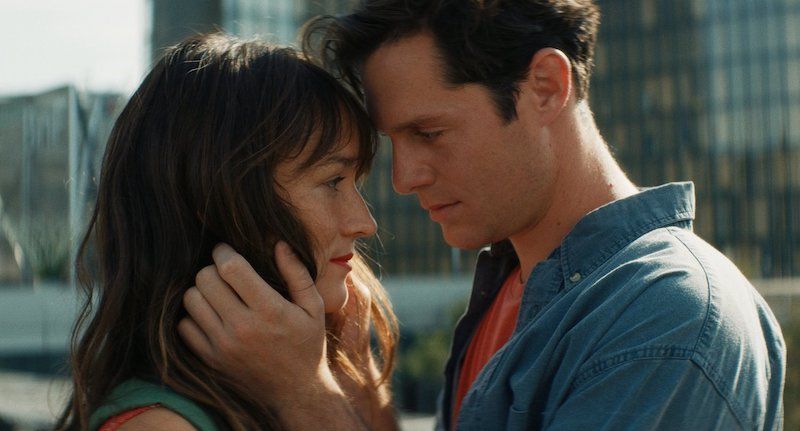
Worst time to watch:
There is no such thing. If you're in the midst of a never-ending Ph.D. dissertation, you might feel triggered by Anaïs' rampant procrastination. Everything has been giving me anxiety these days and I finished this movie in good spirits. Watching Anaïs struggle to stave off an encroaching life crisis is more charming than stressful.
Where to watch:
Check out Magnolia Pictures for a list of streaming and theater options. After you watch, listen to my first podcast episode for more in-depth analysis.
Thoughts:
Younger me thought I would have shit figured out in my thirties, but I'm even more confused now than I was back then. Like Anaïs, I know what I don't want in my life — condescending men, children, thankless jobs. However, the vision of what I do want is murky at best. When writing (or acting) a character like this, it can be tempting to conflate a vague life trajectory with absent perspective or desire (see: Julie in "The Worst Person in the World" [2021]). Bourgeois-Tacquet and Demoustier understand that confusion is not synonymous with a lack of discernible personality.
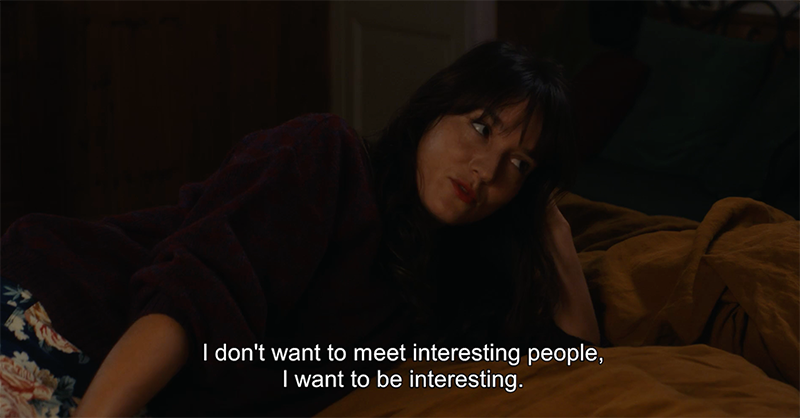
Anaïs doesn't internalize her emotions. If she feels something, she acts on it. Her response is usually impulsive, but she doesn't dwell on whether or not she made the right move. Instead, she keeps running at warp speed, moving from one situation to the next, searching for an unidentifiable purpose or maybe just avoiding what she doesn't wish to confront.
In the film's opening scene, Anaïs races through the streets of Paris with a bouquet of flowers and a backpack. As Nicola Piovani's jaunty piano score plays, she reaches her apartment building, bypasses the lift, and bounds up the stairs. She's late to meet her landlord (Marie-Armelle Deguy), who is equipped with a smoke alarm for the unit and a reminder that the rent is two months past due. Anaïs is apologetic, launching into a story about how she was supposed to share the flat with a boyfriend who is no longer in the picture. During this interaction, she overshares, asks borderline inappropriate personal questions, and undresses with the door open. By the time they part ways, the landlord seems more perplexed than disgruntled.
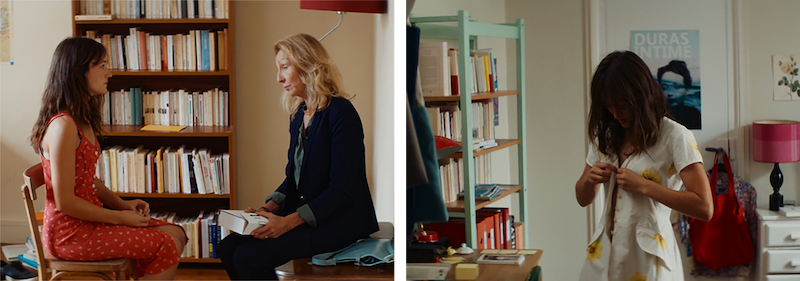
Throughout the film, Anaïs is almost always wearing a floral dress, delightfully matching the opening credits.
Anaïs often has this disarming effect on other people. No matter how irritated someone is initially, they become consumed by her frantic, earnest energy and have no choice but to see where it takes them. The only people who avoid her web of chaos are those who refuse to engage.
When she first meets Daniel, it's not like there's an instant spark between them. The most "alluring" quality he possesses is a susceptibility to her demands. He's happy to finagle her bicycle into the lift, staining his shirt in the process. Not only is her attention flattering and probably unexpected, but it comes with an immediate intimacy that most people must work to achieve. Anaïs has the rare ability to make even strangers feel like close confidants because she lacks the pretenses typically employed to avoid vulnerability.
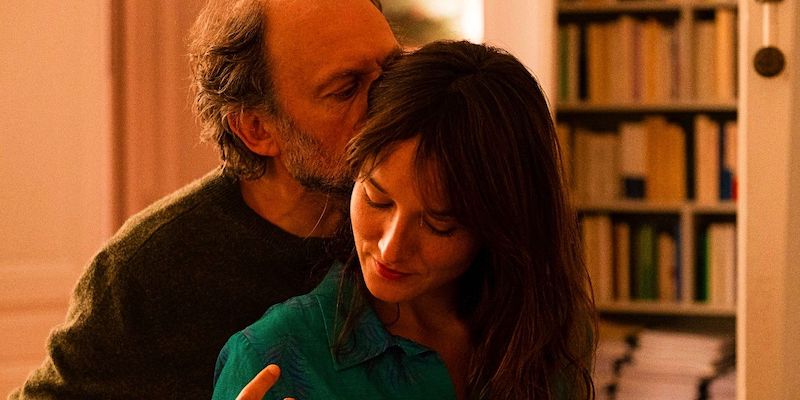
Despite her charming nature, Anaïs doesn't use her allure for manipulation. When Raoul (Christophe Montenez), her ex-boyfriend, calls her violent, she fires back, "You're violent, too, in your inertia and your nonchalance." As soon as her affair with Daniel takes an unappealing turn, she leaves without giving it a second thought, telling him "I like people who know what they want." Anaïs is able to see others clearly and to bail when they no longer suit her needs, egos be damned. In a way, she reminds me of Poppy from Mike Leigh's "Happy-Go-Lucky" (2008), but with less contentment. Anaïs is a spirited person, but more avoidant than optimistic when it comes to her own future.
After dismissing Daniel without fanfare, Anaïs concentrates her energy on Emilie, his partner, who has much more to offer. The connection between them is genuine, predicated on legitimate sexual chemistry and mutual admiration, but requires Anaïs to declare her intentions. Emilie already has a well-established life with a stable partner. If she's going to throw all of that away, there must be a good reason, and Anaïs can't give her one. Behind her youthful charismatic exterior is a daughter contending with her own mother's mortality and a student struggling to motivate herself to complete a fruitless academic endeavor. She's a woman who is adrift in the world and desperately looking for an anchor.
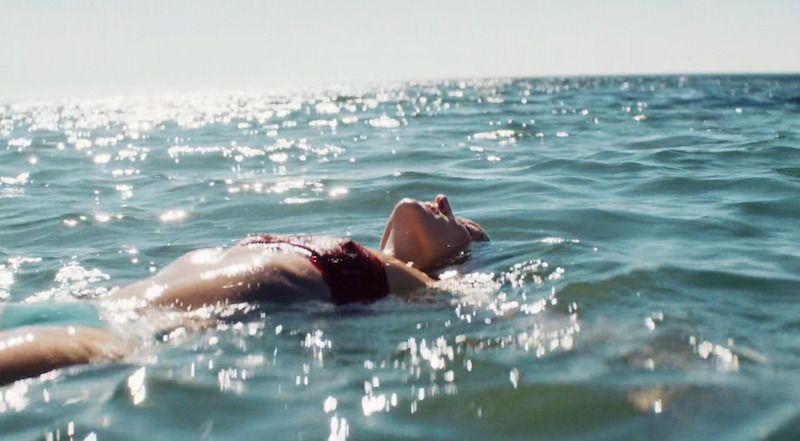
For Anaïs, Emilie represents not only an appealing potential partner, but a glimpse into what her own future might look like if she manages to get her shit together. Only ... Emilie's shit isn't as together as Anaïs presumes. It's not like a woman reaches middle age and magically understands who she is and what she's meant to become. If anything, Anaïs projects a world of assurance onto Emilie, turning her into a fantasy. If the film showed Emilie's perspective, perhaps it would be akin to Gena Rowlands in "Opening Night" (1977), preoccupied with her own harebrained quest for self-discovery.
The big difference between Emilie and Anaïs is that the former has recognized the importance of forging an identity independent of a romantic partner; the latter still believes that love might provide answers. The movie doesn't end on a definitive note as the relationship is left in flux. The viewer gets to make their own assessment about where Anaïs and Emilie stand (and whose worldview is preferable) as the credits roll.
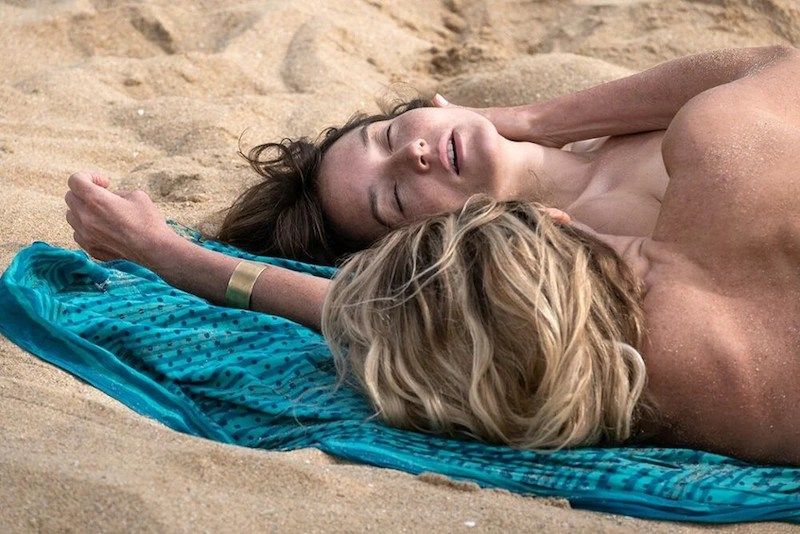
To me, "Anaïs in Love" solidifies the idea that no matter who we are and what we've accomplished, we're all just walking around the earth as clueless as we were the day we were born. As time passes, events take on new meaning, often shifting into something entirely unexpected and even more confusing. Maybe getting older doesn't mean figuring anything out, but finding a way to embrace the inconceivable experience of being alive.
Stray observations:
- The scene of Anaïs snooping around Emilie's bathroom reminded of this blog called World Wide Aura that catalogs beauty products in film and TV shows. While I can't identify most of Emilie's products, I believe she uses Guerlain Orchidee Imperiale Black Anti-Aging Cream (which is $1,380 lol), a lipstick from the KissKiss line, and Shalimar perfume. I am now suspicious of Guerlain product placement.
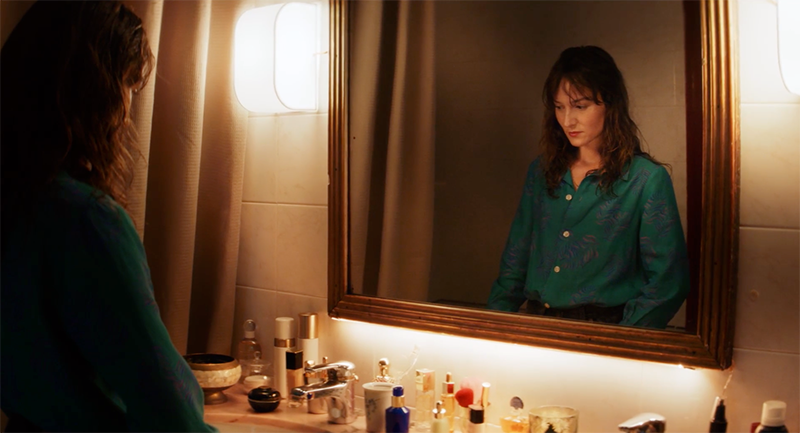
- I want to see Anaïs in a therapy session with the titular character from Justine Triet's "Sibyl" (2019). Can you imagine those two interacting?
- What kind of asshole has a pet lemur? Who does Balthazar's girlfriend think she is, Kirstie Alley?
- Anaïs explains to Raoul that she's late for their movie date because a guy was telling her something "fishy" about 17th century French women writers: "He said Mme de Lafayette wrote to Mme de Sévigné. I doubt it. I think he meant Mme de Sablé. He said the tone was really tender. He was implying she was in love. What an imagination. Back then, an eight-year age difference was like a generation." This alleged dynamic between de Lafayette and de Sévigné obviously parallels Emilie and Anaïs, but I wonder if there's a deeper read here for someone who knows more about French literary history.
- The floral title cards and dresses gave me an instant hit of serotonin.

- This movie has me re-reading "The Ravishing of Lol Stein," which I can't believe I felt "meh" about the first time around.
- Valeria Bruni-Tedeschi has a new movie premiering at Cannes (that she wrote/directed). I haven't seen it yet, but I look forward to watching. For those interested in learning more about the history of women filmmakers at Cannes, I can't recommend Seventh Row's new podcast series highly enough.





